- Home
- slideshows
- miscellaneous
- 9 nutritionist-recommended foods and drinks that are potentially dangerous to your health
9 nutritionist-recommended foods and drinks that are potentially dangerous to your health
Red wine has an ingredient that could help your heart, but drinking too much of it could increase your risk of cancer or stroke.

Fish oil supplements contain essential omega-3s, but they might also increase your risk of bleeding.
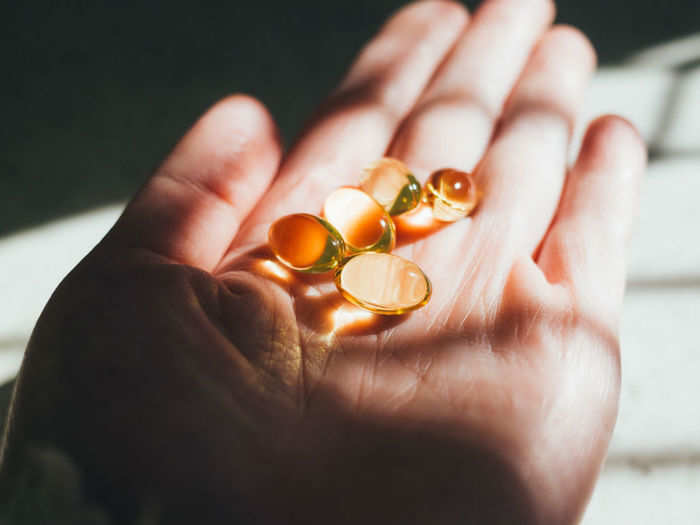
Americans spend more than $1 billion a year on fish- and animal-derived supplements, with many under the impression that these nutrients can reduce inflammation or cardiovascular risk. This seems to only be the case for people who don't consume any fish or have elevated triglyceride levels.
The Mayo Clinic even suggests that high doses of fish oil supplements could increase your risk of bleeding or stroke, or potentially hinder your immune response. Though the clinic says the supplements are "generally safe," doctors tend to advise that people get their omega-3 fatty acids from whole foods, if possible.
Store-bought cinnamon is generally considered a healthy treat, but it could be toxic for your liver.
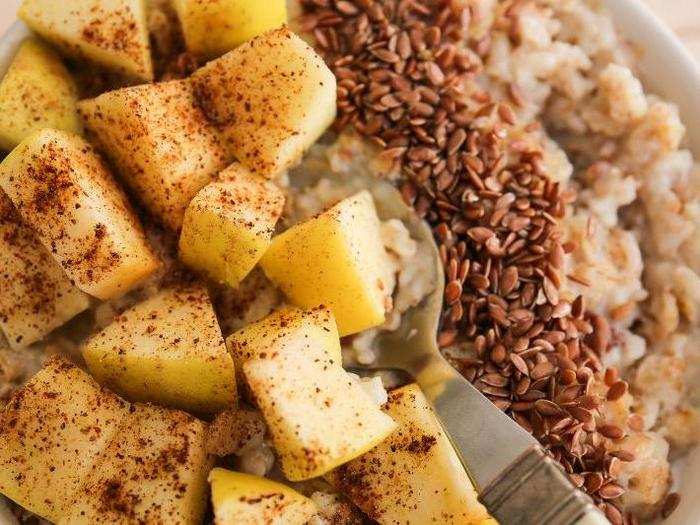
Cinnamon is often touted as a yummy way to consume antioxidants that reduce inflammation and blood sugar levels, which can in turn lower your risk of heart disease or type 2 diabetes. But not all cinnamon is created equal.
The spice actually comes in two main forms: the kind we see most often in stores, known as cassia, and the rarer, more expensive version known as ceylon.
Store-bought cinnamon has a much higher percentage of coumarin, an organic compound that could damage liver cells and potentially lead to cancer. Because of this, the average person is generally advised not to consume more than one to one-and-a-half teaspoons of cassia cinnamon each day.
Ceylon cinnamon, on the other hand, has shown signs of staving off cancerous tumors, lowering blood pressure, healing wounds, and preventing liver damage.
Nutmeg might also be a cause for concern due to its hallucinogenic properties.
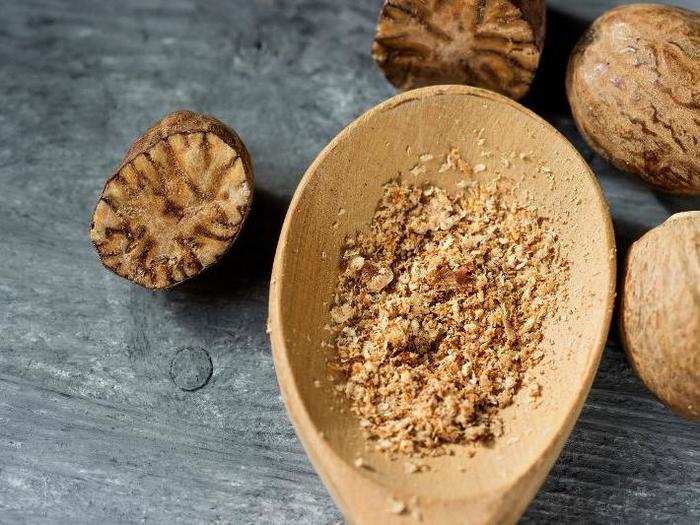
Nutmeg is an ancient remedy for pain and digestive issues, but it's potentially toxic in large doses. The spice contains a substance called myristicin, which is has been known to have hallucinogenic properties.
A 2015 study found that just 5 grams of ground nutmeg — about two teaspoons — could be considered a "toxic dose" due to its hallucinogenic effects, but humans likely need to consume much more for it to become an actual health risk.
Coffee contains acrylamide, a chemical that's been linked to cancer.

Many scientific studies have found associations between drinking coffee and a number of health benefits, including longer life spans and reduced risk of heart attack. But some researchers believe it could be linked to cancer, since a potentially carcinogenic chemical called acrylamide forms when coffee beans are roasted.
Last spring, a California judge ruled that coffee companies must post warnings about acrylamide, in accordance with Proposition 65, a state law that requires businesses to alert residents about significant exposures to toxic chemicals.
Thus far, studies have only shown that acrylamide leads to cancer in rats and mice that get exposed to the chemical at much higher doses than what humans would encounter. Though a single cup of coffee doesn't contain enough acrylamide to endanger human health, the average American drinks almost two cups per day, which could potentially increase their exposure with time.
Green tea might be one of the best drinks for your health, but it could be linked to cancer if it's too hot.
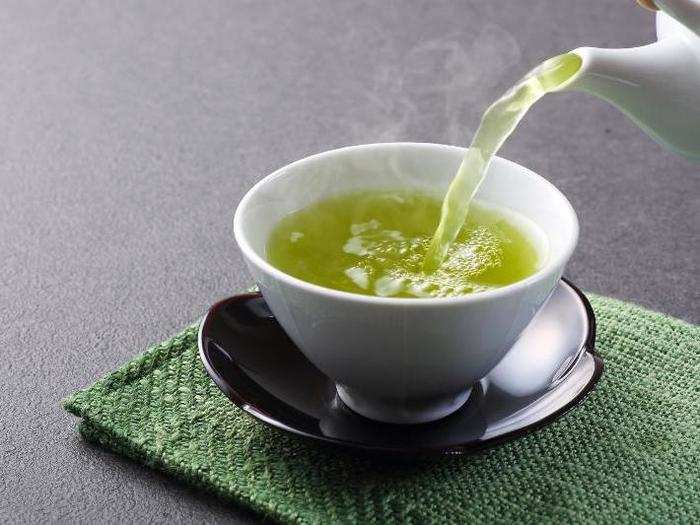
There's promising scientific evidence that green tea can lower cholesterol and interfere with the replication of cancer cells. But drinking anything that's too hot could potentially have a negative effect on your esophageal health.
The International Journal of Cancer recently published a study saying that the frequent consumption of very hot tea could increase the risk of esophageal cancer. The researchers found that drinking three cups of tea per day at more than 140 degrees Fahrenheit increased the risk of esophageal cancer by about 90% among 50,000 people ages 40 to 75.
Preliminary studies have also shown that green tea extract may be damaging to your liver, but more research is needed to determine the risk.
Tuna is a lean protein, but it's also high in methylmercury — an environmental toxin that can cause development issues in children.
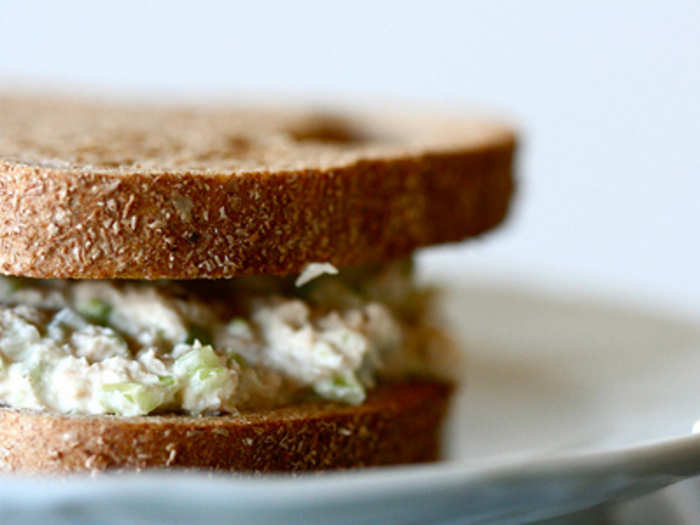
Tuna is generally considered to be a healthier swap for red or processed meat, but it can also contain relatively high amounts of an environmental toxin called methylmercury.
Studies have shown that even low-level exposure to methylmercury can impair memory and fine-motor function in adults. It can also cause development issues in children, which is why it's generally advised for pregnant women to reduce their consumption of canned tuna.
But pregnant women aren't the only group that should be concerned. A 2018 Harvard study found that tuna contributes to 37% of the world's intake of methylmercury through fish.
Even a handful of Brazil nuts could contain too much selenium.

Brazil nuts aren't normally consumed in excess, but fans of the food might want to consider a few potentially adverse health effects.
Brazil nuts contain more than 770% of the daily recommended value of selenium, an essential mineral that can help with fertility and brain function. Too much selenium can cause nausea, fatigue, or, in extreme cases, kidney and heart failure.
Adults aren't advised to consume more than 400 micrograms of selenium per day, but about 6 to 8 Brazil nuts would put you over that limit.
Rhubarb is fine to consume — just don't eat the leaves. They contain high amounts of oxalic acid, which is poisonous to humans.
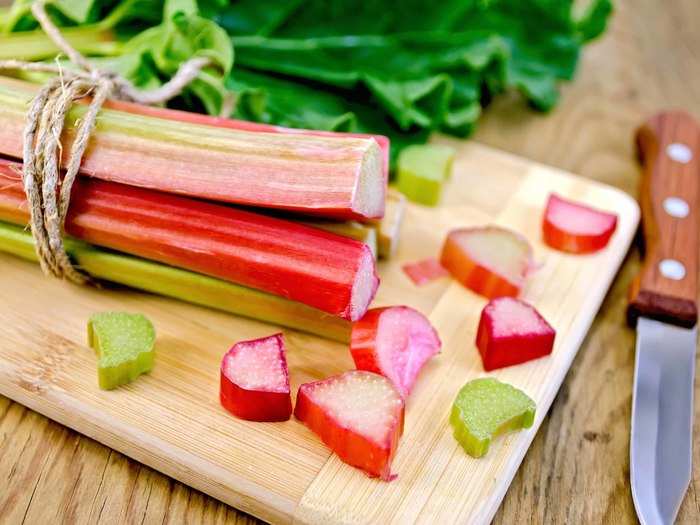
Rhubarb is chock full of essential nutrients like manganese and vitamin K, but its leaves are poisonous to humans. That's because they're high in oxalic acid, which can cause severe burning, vomiting, kidney failure, and in some cases even death.
While humans would have to consume around 10 pounds of rhubarb leaves for the food to be lethal, we shouldn't consider it edible. The British government learned this lesson back in World War I, when they recommended eating rhubarb leaves as a way to address the food shortage, and it resulted in multiple sickness and at least one death.
Popular Right Now
Popular Keywords
Advertisement